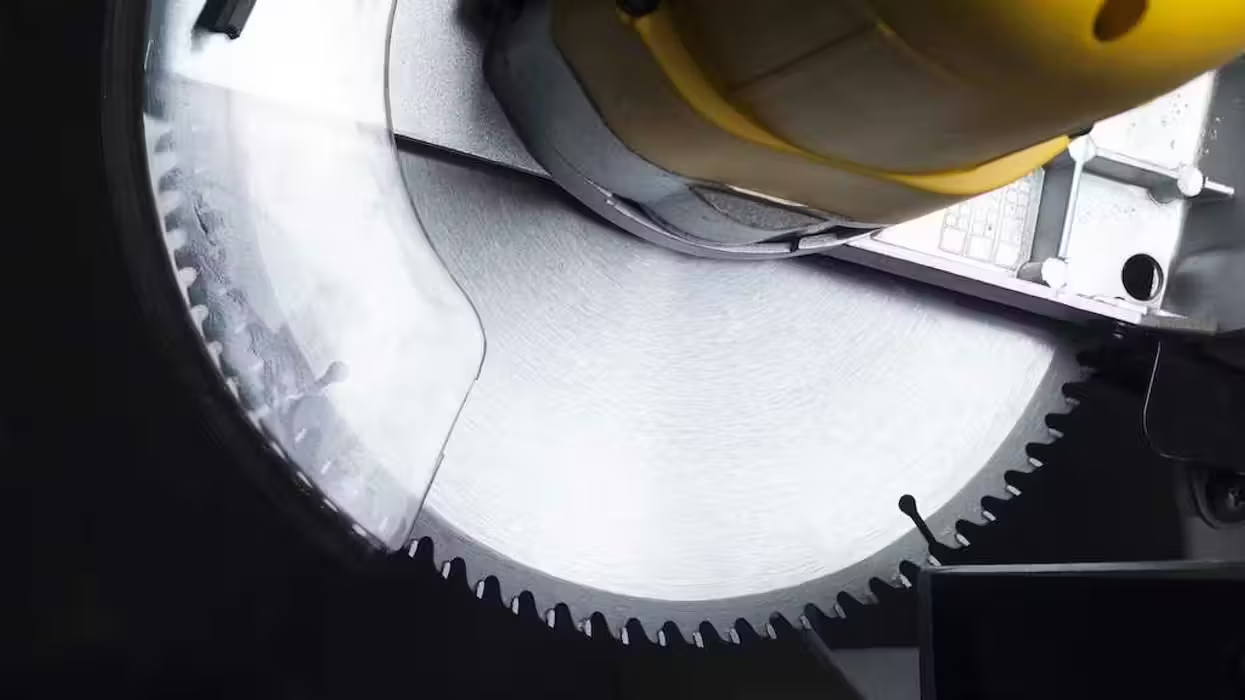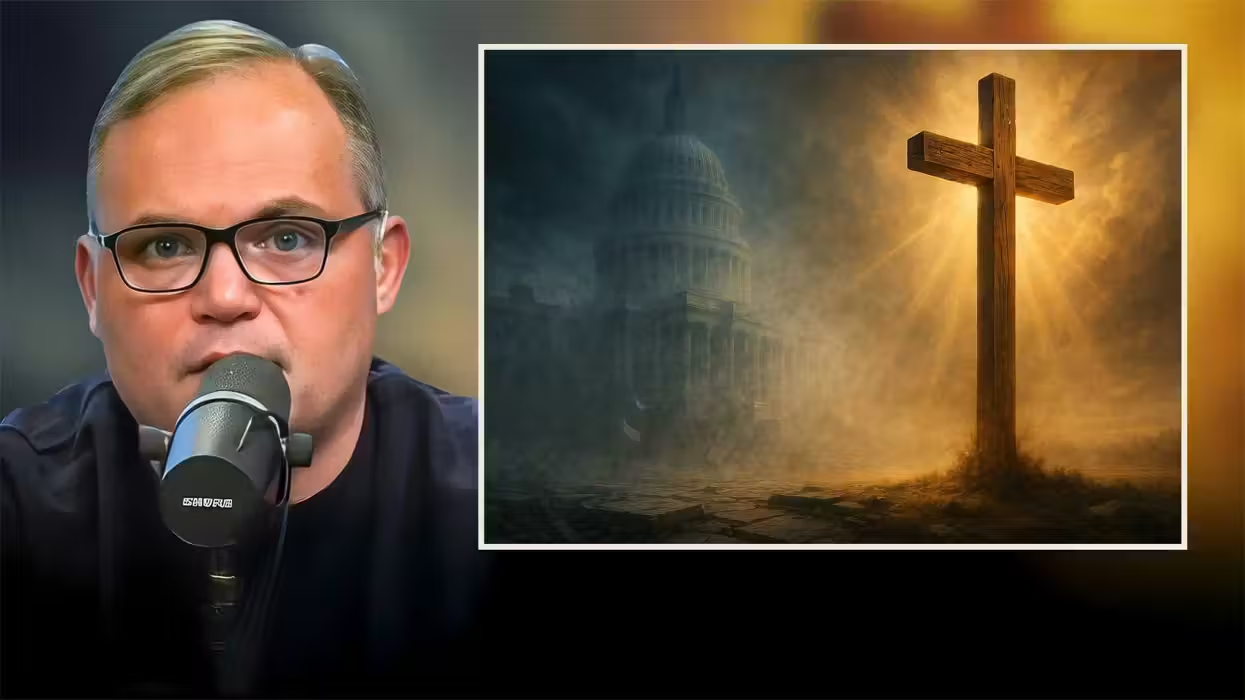Secretary of State John Kerry seemed to skirt dangerously close to embellishing the quality of the tentative Iran nuclear agreement that was announced Thursday, by implying that the deal would never expire even though key parts of it will, and by implying that Iran's nuclear facility at Fordo would never again enrich uranium.
Kerry spoke just moments after Iran and several world powers announced a deal that they hope can lead to a final, written agreement aimed at curbing Iran's nuclear program. Kerry and President Barack Obama said the deal meets their objective of cutting off Iran's ability to build a nuclear bomb.
 Secretary of State John Kerry gestures while participating in the Sixth Annual Washington Ideas Forum in Washington, Thursday, Oct. 30, 2014. The forum is presented by the Aspen Institute and The Atlantic at the Harman Center for the Arts. (AP Photo/Cliff Owen)
Secretary of State John Kerry gestures while participating in the Sixth Annual Washington Ideas Forum in Washington, Thursday, Oct. 30, 2014. The forum is presented by the Aspen Institute and The Atlantic at the Harman Center for the Arts. (AP Photo/Cliff Owen)
While the Obama administration has faced criticism for pushing a deal that would expire after a certain number of years, Kerry stressed that this is not the case.
"There will be no sunset to the deal that we are working to finalize," he said. "No sunset, none."
However, Kerry then proceeded to note that may key elements of the deal would in fact expire after 10, 15 or 25 years. "Some provisions will be in place for 10 years, others will be in place for 15 years, others still will be in place for 25 years," he said.
He also noted that some provisions, such as those related to transparency, would last forever, but that's a far cry from the idea that restrictions on Iran's ability to enrich uranium would last forever.
Kerry also seemed to imply that Iran would never be able to enrich uranium at the underground facility at Fordo ever again.
"We have agreed that the facility at Fordo will halt all uranium enrichment, period," he said. "All uranium enrichment, and in fact, there will not even be any fissile material present at the site, and no enrichment R&D."
"Instead, the facility will be converted into a nuclear physics and technology center," he added.
But Kerry left out information in a White House fact sheet that said Iran has agreed not to enrich uranium at Fordo "for at least 15 years," and that Iran won't conduct R&D on enrichment there for 15 years.
The fact sheet itself seems confused on the issue, as it says Iran won't enrich uranium at Fordo for 15 years, but then later says any centrifuges that remain at Fordo "will not enrich uranium," and doesn't specify a time limit on that condition.
Kerry's statements may only make it more confusing for members of Congress who are trying to assess whether they can support the agreement. The announcement had some members of Congress saying they need to review the deal as quickly as possible before any promises are made about lifting sanctions.
"My longtime concerns about the parameters of this potential agreement remain, but my immediate concern is the administration signaling it will provide near-term sanctions relief," said House Speaker John Boehner (R-Ohio). "Congress must be allowed to fully review the details of any agreement before any sanctions are lifted."
Another point of confusion is the way Iranian Foreign Minister Mohammad Javad Zarif described the agreement today.
For example, Zarif indicated to reporters that all U.S. sanctions would be lifted immediately, while the fact sheet says those sanctions will be eased over time, as Iran implements the agreement.
Zarif also seemed to imply that nothing in the deal would hurt Iran's nuclear program at all.
Members trying to assess the deal are likely to mostly lean on the fact sheet provided by the White House, although the administration is also expected to start briefing members in the coming days and weeks. For many, support or opposition may depend on their view of how long the various commitments last.
According to the fact sheet, Iran will be left with 6,104 centrifuges, down about two-thirds from the 19,000 is has running today. But that restriction would last 10 years.
Iran would also face a 15-year limitation on how much enriched uranium it can stockpile. Most limitations related to the Fordo facility would last 15 years, and restrictions on enriching uranium in the Natanz facility would last 10 years.
Iran would face inspections for 20 or 25 years, and some of these inspection requirements appear to be permanent.
On the question of sanctions, the fact sheet is vague on precisely when U.S. sanctions would be lifted.
"U.S. and E.U. nuclear-related sanctions will be suspended after the IAEA has verified that Iran has taken all of its key nuclear-related steps," it said. "If at any time Iran fails to fulfill its commitments, these sanctions will snap back into place."
"The architecture of U.S. nuclear-related sanctions on Iran will be retained for much of the duration of the deal and allow for snap-back of sanctions in the event of significant non-performance," it added.
Read the fact sheet here:

 Secretary of State John Kerry gestures while participating in the Sixth Annual Washington Ideas Forum in Washington, Thursday, Oct. 30, 2014. The forum is presented by the Aspen Institute and The Atlantic at the Harman Center for the Arts. (AP Photo/Cliff Owen)
Secretary of State John Kerry gestures while participating in the Sixth Annual Washington Ideas Forum in Washington, Thursday, Oct. 30, 2014. The forum is presented by the Aspen Institute and The Atlantic at the Harman Center for the Arts. (AP Photo/Cliff Owen)






